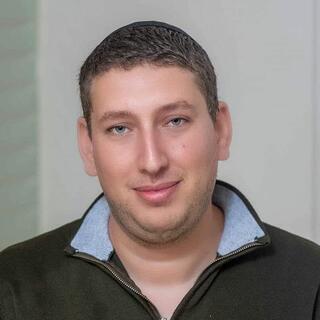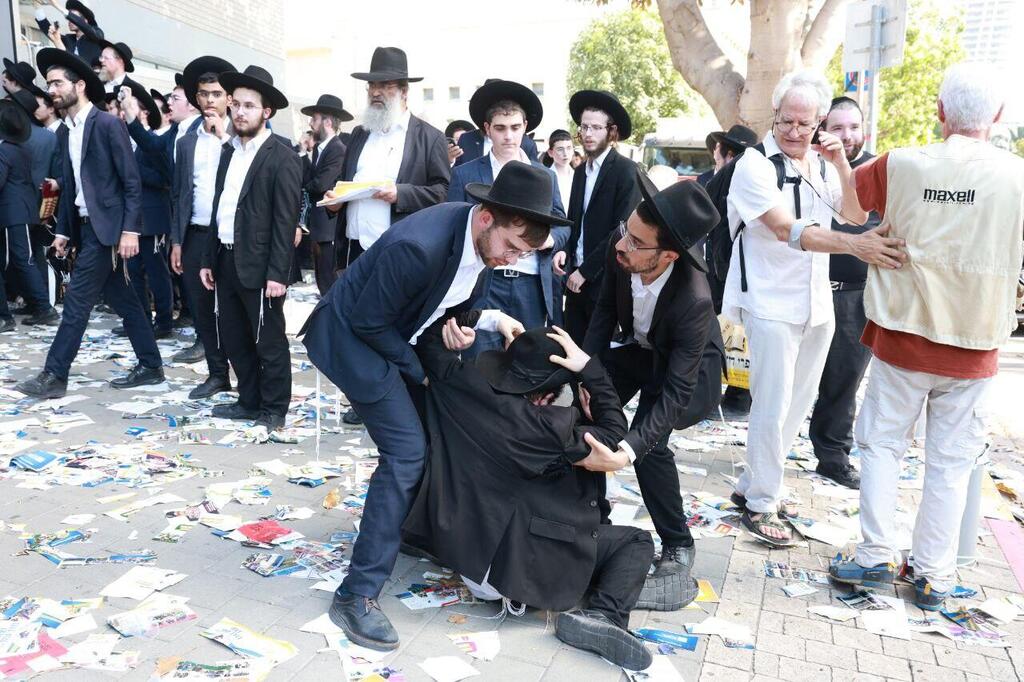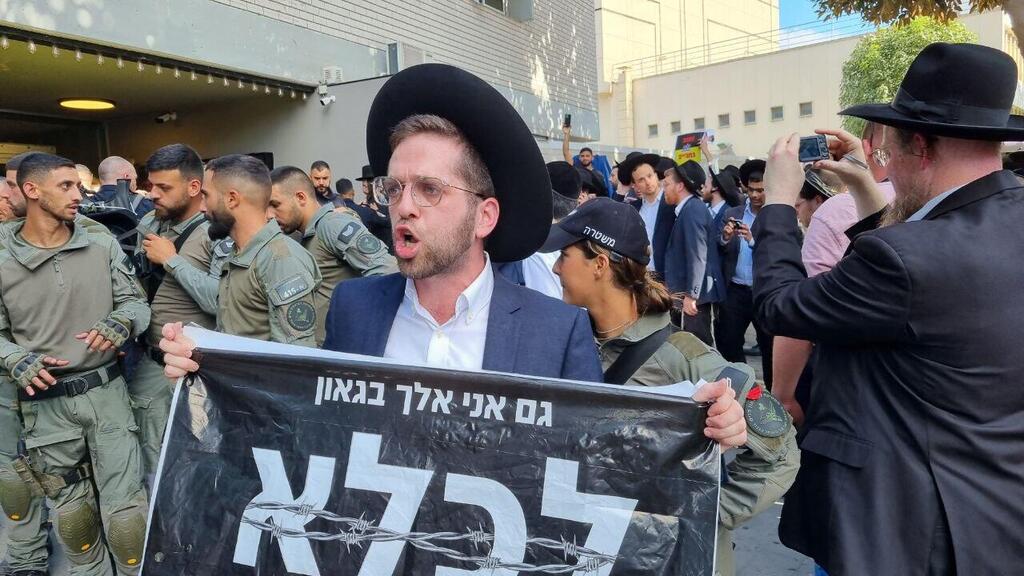Getting your Trinity Audio player ready...
The protests by the Jerusalem Faction, which I regularly cover, spark interest from many angles. There are the catchy and radical slogans, the determination and stubbornness of those who stand on the roads for hours in the summer heat and the repulsive names hurled at police officers, especially female officers.
However, on the fringes of the protest, some participants choose to shout less and instead explain their views in depth to police officers, passersby and even us journalists. Here, a very different picture emerges from what we usually see.
Haredi radicals protest draft
(Video: Dana Kopel, Shilo Freid)
These young protesters are convinced that the military aims to secularize them. It is not a fear of drifting away from the yeshiva and weakening their faith, nor is it a fear of exposure to different values during military service. They are convinced that the main purpose of the draft is to take religious Jews and turn them into complete heretics. This is not hinted at; it is openly stated. The protesters believe that secularization is the goal, and the army is the means to achieve it.
These young men have not only created a way of life different from most Israelis, which is legitimate and accepted, but they perceive the world in an entirely distorted manner. One young man, who stood before me at one of the extreme ultra-Orthodox protests, confidently explained that enlisting in the IDF is prohibited because there are no rabbis in the army to rule on halachic issues.
I explained to him that the IDF has a chief military rabbi, brigade rabbis, battalion rabbis, kashrut supervisors and even a Torah scribe. He insisted that even if they exist, they have no influence over how things are run.
I responded that while not everything is perfect, matters like kashrut, holidays and Shabbat observance in public spaces are anchored in IDF orders and command directives. This doesn't mean problems never arise, but there is considerable effort and accommodation on these issues.
The young man continued to tell me that his rabbi heard from people who served in the IDF that they were forced to desecrate Shabbat and eat non-kosher food, claiming that they were compelled to do so by their commanders.
I explained again that the IDF serves kosher food by regulation. If there are any issues, the relevant authorities can be contacted. There is certainly no command to desecrate the Sabbath unless it involves saving a life.
In an ideal world, a protest by the extremist faction in Tel Aviv, held in light of a Haredi draft conference there, could have been an opportunity for dialogue and reconciliation between secular and Haredi Jews. However, in reality, it became an event where Tel Aviv residents who tried to engage with the protesters were mostly exposed to the imaginary world through which they view the army and the state.
A secular woman who attempted to talk with the young men rather than confront them simply explained that her son, who is a soldier, is limited in the food he can bring to the base because the army maintains kosher standards. He is restricted from using a phone on the Sabbath in the dining hall or other places because the regulations prohibit it. Despite all this, she was shocked to hear how the army appears through their eyes.
My military service in Army Radio was a mere glimpse. But from my friends and brothers who have served and continue to serve in all branches of the military, I believe I know a little more than the young man standing in front of me, who had heard third- or fourth-hand stories that resembled tales from other armies in history, where joining could be akin to cultural destruction.
But the deeply ingrained belief they hold was difficult to penetrate. Passersby who tried to appeal to the protesters found themselves facing the same dialogue, met with unwavering confidence in their fears and horror stories about a corrupting army. These young men are convinced they are facing an affront to the Torah, repeatedly telling the police that nothing will help them. Even if they are beaten, they will not abandon the Torah. Incidentally, the police were only trying to move them off the road.
Draft notices and economic sanctions might move something small, but dismantling this deep and powerful mindset will be incredibly challenging.







